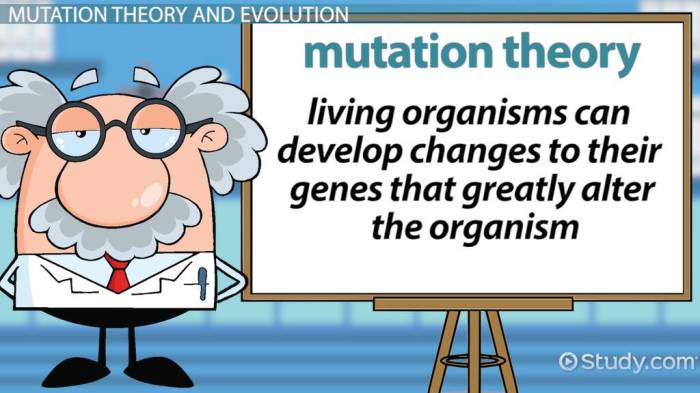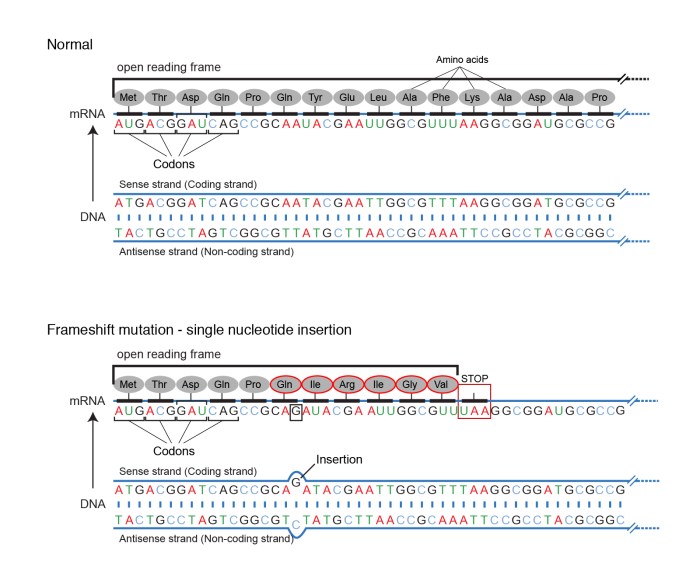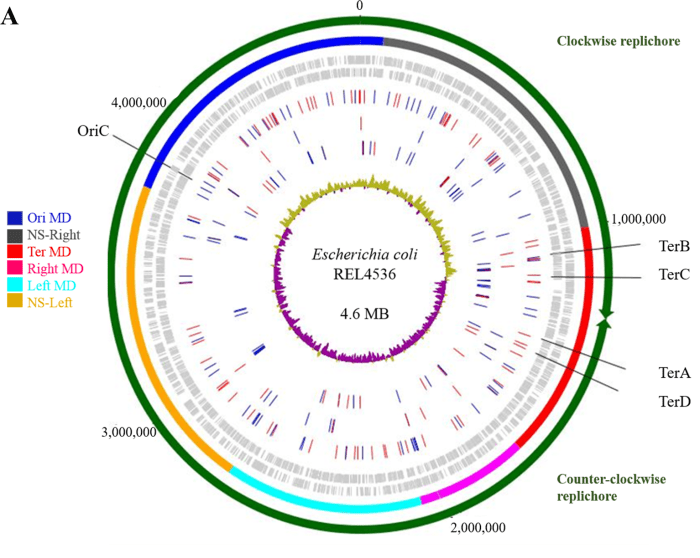Delving into the realm of evolution mutation nation answer key, we embark on an extraordinary journey that unravels the intricate relationship between evolution and mutation. This captivating exploration unveils the profound impact of mutations on the evolution of species, the genetic basis of human variation, and the ethical implications that shape our understanding of genetic technologies.
As we delve deeper into the topic, we will uncover the different types of mutations, their potential benefits and risks, and their contribution to the diversity of life. We will also examine specific examples of mutations that have played a significant role in human evolution and explore the ethical considerations surrounding the use of genetic information and genetic engineering.
Evolution and Mutation
Evolution and mutation are two intertwined concepts that form the basis of evolutionary theory. Mutation refers to changes in the genetic material of an organism, while evolution is the process by which populations of organisms change over generations.
Mutations are random changes in DNA sequences that can have a variety of effects on an organism. Some mutations are harmful, leading to developmental defects or reduced fitness. Others are neutral, having no noticeable effect on the organism. A small number of mutations are beneficial, providing the organism with an advantage in its environment.
Role of Natural Selection
Natural selection is the driving force behind evolution. It acts on genetic variation within a population, favoring individuals with traits that are better suited to their environment. Over time, this can lead to the evolution of new species.
For example, consider a population of insects that live on a green plant. If a mutation occurs that causes some insects to have brown coloration, these insects may be better camouflaged from predators and have a higher chance of survival.
Over time, the frequency of the brown coloration allele will increase in the population, as individuals with this trait are more likely to survive and reproduce.
The Impact of Mutation on Evolution
Mutation is a crucial evolutionary mechanism that introduces genetic variation into populations, influencing the course of evolution. Mutations can be beneficial, harmful, or neutral, and their impact on evolution depends on their type, magnitude, and the environmental context.
Types of Mutations
- Point Mutations:Replace, insert, or delete a single nucleotide base pair in the DNA sequence.
- Insertions and Deletions:Add or remove larger segments of DNA, potentially affecting gene function.
- Duplications:Copy and insert additional copies of existing genes or DNA segments.
- Inversions:Reverse the orientation of a DNA segment within a chromosome.
- Translocations:Exchange DNA segments between different chromosomes.
Benefits and Risks of Mutations
Benefits:
- Provide raw material for natural selection to act upon.
- Can create new or enhance existing advantageous traits.
- Contribute to the evolution of new species.
Risks:
- Can disrupt gene function, leading to genetic disorders.
- May decrease fitness and survival chances of individuals.
- Can accumulate in populations, potentially leading to genetic bottlenecks.
Mutations and Diversity of Life
Mutations are the ultimate source of genetic variation within populations. They create new alleles, which can be passed on to offspring through reproduction. Over time, the accumulation of mutations can lead to the evolution of new species through a process called genetic divergence.
This process has played a significant role in the diversity of life on Earth, giving rise to the vast array of species we see today.
Mutations in Human Evolution

Mutations have played a significant role in shaping human evolution. They have contributed to the development of new traits, the adaptation to different environments, and the emergence of genetic disorders.
Examples of Mutations in Human Evolution
- Lactase persistence:The ability to digest lactose, the sugar found in milk, is a result of a mutation that occurred around 10,000 years ago. This mutation allowed humans to consume milk as adults, providing a new source of nutrition.
- Sickle cell anemia:A mutation in the hemoglobin gene causes sickle cell anemia, a condition in which red blood cells become sickle-shaped. This mutation provides resistance to malaria, a deadly disease that is common in Africa.
- Tay-Sachs disease:A mutation in the HEXA gene causes Tay-Sachs disease, a fatal neurodegenerative disorder. This mutation prevents the body from producing an enzyme that is essential for the breakdown of certain fatty acids.
Genetic Basis of Human Variation
Mutations are the ultimate source of genetic variation in humans. They can change the DNA sequence of genes, leading to the production of different proteins. These changes can affect physical traits, such as height, eye color, and hair texture, as well as susceptibility to diseases.
Mutations and Genetic Disorders
Mutations can also contribute to the development of genetic disorders. These disorders are caused by harmful mutations that disrupt the function of genes. Genetic disorders can range from mild to severe, and they can affect any part of the body.
The Ethical Implications of Mutation: Evolution Mutation Nation Answer Key

The ethical implications of mutation encompass a complex interplay of medical advancements, social values, and societal responsibilities. The ability to access and manipulate genetic information raises profound questions about the prevention and treatment of diseases, the potential benefits and risks of genetic engineering, and the role of government and society in regulating the use of these technologies.
Genetic Information and Disease
The availability of genetic information through genetic testing has revolutionized healthcare. It allows for the identification of individuals at risk for developing certain diseases, enabling early intervention and preventive measures. However, it also raises concerns about genetic discrimination, where individuals may be denied insurance or employment based on their genetic predispositions.
Striking a balance between the benefits of genetic testing and the protection of individual privacy and autonomy is a critical ethical consideration.
Genetic Engineering
Genetic engineering holds immense potential for treating genetic diseases and improving human health. However, it also raises ethical concerns about the unintended consequences of altering the human genome. Modifying human embryos raises questions about the ethical status of future generations and the potential for creating designer babies with specific traits.
Furthermore, the use of genetic engineering for non-medical purposes, such as enhancing physical or cognitive abilities, raises concerns about social inequality and the commodification of human life.
Government and Societal Regulation
The ethical implications of mutation require careful consideration and regulation by government and society. Laws and policies are necessary to protect individuals from genetic discrimination, ensure informed consent for genetic testing, and regulate the use of genetic engineering technologies. Public discourse and ethical guidelines are also crucial to shape the responsible use of genetic technologies and address the complex ethical challenges they present.
The Future of Mutation

Advances in technology are rapidly changing our understanding of mutation. New sequencing technologies allow us to identify and study mutations in unprecedented detail, and computational tools enable us to analyze these mutations and their effects on gene function. This increased understanding of mutation is having a profound impact on our understanding of evolution and the future of genetic engineering.
Genetic Engineering and the Future of Evolution
Genetic engineering has the potential to revolutionize evolution by allowing us to introduce specific mutations into organisms. This could be used to improve crop yields, create new medical treatments, or even modify human evolution. However, genetic engineering also raises a number of ethical concerns, such as the potential for unintended consequences and the slippery slope towards eugenics.
Ethical Challenges, Evolution mutation nation answer key
As we continue to learn more about mutation, we will face a number of ethical challenges. These include the need to balance the potential benefits of genetic engineering with the risks, the need to ensure that genetic engineering is used fairly and equitably, and the need to protect the genetic diversity of our species.
Common Queries
What is the relationship between evolution and mutation?
Mutation provides the raw material for evolution by introducing genetic variation into populations. Natural selection acts on these variations, favoring those that enhance an organism’s survival and reproductive success.
How can mutations contribute to the diversity of life?
Mutations introduce new genetic traits into populations, increasing genetic diversity. This diversity provides the foundation for natural selection to operate, leading to the evolution of new species and the adaptation of existing ones to changing environments.
What are the ethical implications of using genetic information?
The use of genetic information raises concerns about privacy, discrimination, and the potential misuse of genetic technologies. It is crucial to establish ethical guidelines and regulations to ensure the responsible use of genetic information and protect individuals from potential harm.